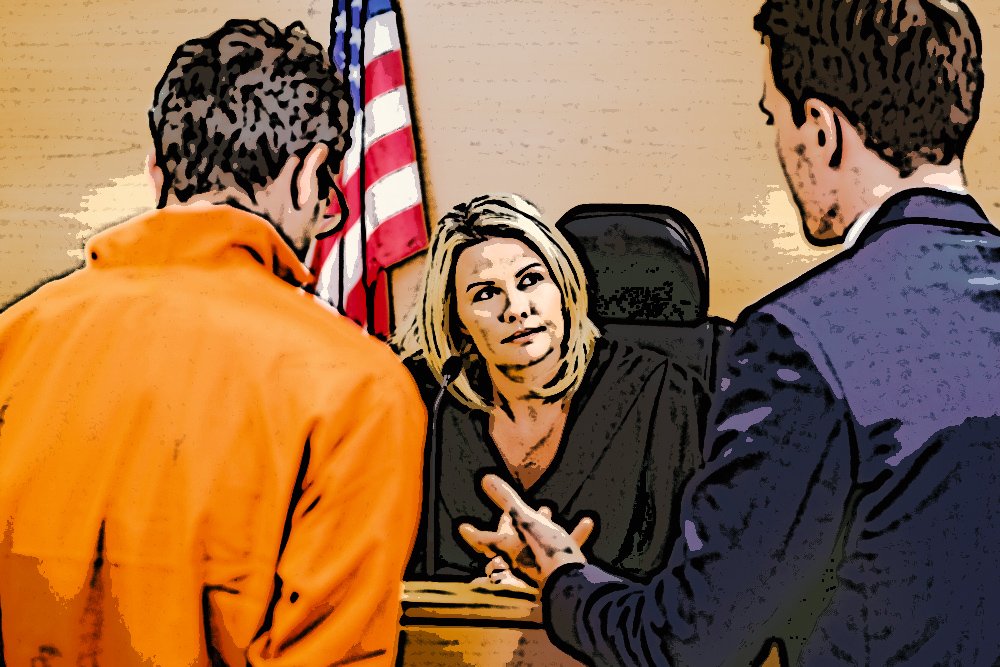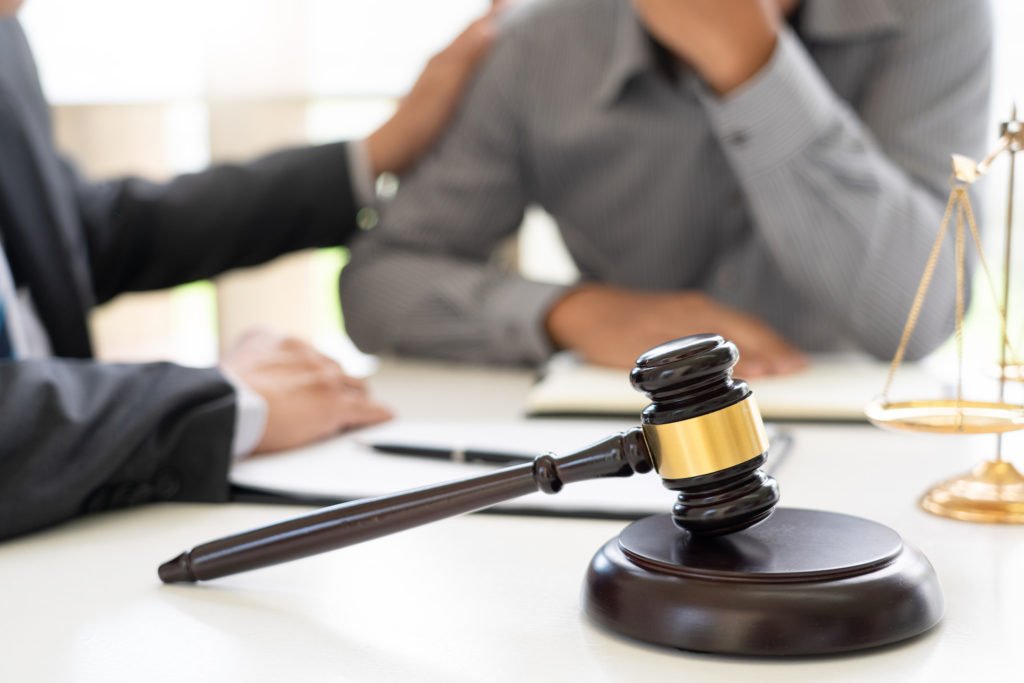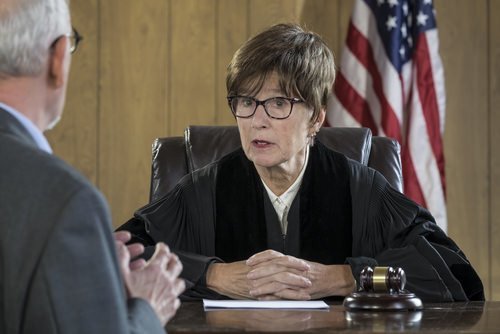In Arizona, a Rule 11 hearing is a court proceeding where the judge determines whether the criminal defendant is mentally competent enough to stand trial. Defendants are incompetent if they are unable to understand the court proceedings or cannot assist in their own defense. If the judge finds a defendnat to be incompetent, he or she may be detained in a mental hospital.

A Rule 11 hearing is a court proceeding where the judge determines whether the criminal defendant is mentally competent enough to stand trial in Arizona.
1. What happens at a Rule 11 hearing in Arizona?
At a Rule 11 hearing, medical experts will conduct competency examinations of a defendant to see if he or she is mentally competent enough to stand trial. The court will consider the results of the experts’ reports during the Rule 11 hearing in determining the defendant’s competency.
The defendant is mentally incompetent if he or she:
- is unable to understand the nature and objective of the court proceedings, or
- cannot assist in their defense because of a mental illness, defect, or disability.1
The hearing will be held if the court finds that there is a reasonable ground to suspect that the defendant is mentally incompetent.2 In some cases where the superior court judge is unsure of whether to hold a Rule 11 hearing, the court will hold a preliminary examination to decide whether to hold a full Rule 11 evaluation.3
For a full Rule 11 hearing, the court will appoint 2 or more mental health experts to:
- examine the defendant,
- file a report with the court within 10 days of the examination, and
- testify about the defendant’s competence.4
The prosecutor and the defense lawyer can agree to the appointment of a single expert.5
These mental health experts have to be licensed physicians or psychologists who are:
- familiar with Arizona’s laws for mental competence and for criminal and involuntary confinement,
- familiar with the available treatments, training, and the restoration programs in the state,
- court approved in forensics, and
- up-to-date in required training and continuing education programs.6
These experts have to be provided with the defendant’s medical and criminal history records within 3 days of being appointed to the case.7
After conducting the competency examination on the defendant, the mental health experts have to file a report with the court within 10 days.8 The report has to include the following information:
- the expert’s name,
- a description of the examination,
- the expert’s opinion on whether the defendant is competent to stand trial or not, and
- the facts on which that opinion is based.9
Additionally, if the mental health expert thinks that the defendant is not competent to stand trial, the report has to state:
- the nature of the mental issue causing the incompetency,
- the defendant’s prognosis,
- the best place and type of treatment for the defendant, based on his or her needs and the potential for harm to the public, and
- whether the defendant is too incompetent to refuse treatment and should be treated involuntarily.10
Within 30 days of receiving the experts’ reports, the court will hold the Rule 11 hearing.11 At this hearing, the judge will decide whether the defendant is competent to stand trial based on:
- the mental health experts’ reports,
- testimony by the experts, and
- other evidence provided by the prosecutor or the defense lawyer.12
In some cases, the reports will be the only evidence presented.
The judge can then decide that the defendant is:
- competent to stand trial,
- currently incompetent, but restorable to mental competence, or
- incompetent to stand trial and not restorable.13
If both of the reports from the mental health experts agree, the judge will generally follow their guidance. If the experts split on competence, the judge may have the defendant undergo another competency examination from a third expert.
Throughout this process, the defendant has a right to defense counsel.14 The right to a Rule 11 hearing and to legal representation stems from the defendant’s rights to a fair trial and due process.
2. What happens at the competency examination?
At the competency examination, mental health experts will ask the defendant questions that are designed to determine whether he or she:
- understands what is happening in their criminal case, or
- can help in their own defense to the criminal charges.
The defendant may have very serious mental health problems, but if they do not affect these two issues, then the defendant would still be deemed competent to stand trial.
These questions are often extremely basic. Common questions are:
- What do the prosecutor, defense lawyer, and judge do?
- What is the role of the jury?
- Are you aware of the charges you are facing?
- Do you understand what a plea agreement is?
This competency hearing is often very fast. The mental examination may only take a few minutes.

The criminal defense attorney is often the person to file a motion for examination and demand a Rule 11 hearing.
3. Who can request a Rule 11 hearing?
The criminal defense attorney is often the person to file a motion for examination and demand a Rule 11 hearing. The court can also schedule a Rule 11 hearing of its own accord if the presiding judge has good cause to believe that the defendant might be incompetent.15 Occasionally, the prosecutor or a co-defendant can file the motion. The motion for examination can include a list of mental health experts to perform the examination. 16
4. Where is the hearing held?
Generally, all Rule 11 hearings are held by the Arizona superior courts.17″>If the case is before a judge in a justice court or a city court, as many misdemeanor cases are, then the judge has to either transfer the case to a superior court for the Rule 11 hearing, or be issued an administrative order from the superior court to hold the hearing in the lower court.18
The competency examinations are often held outside of the courtroom.
5. At what stage does a Rule 11 hearing happen?
A Rule 11 hearing can happen at any time in a criminal case. They can be requested during the:
- preliminary hearing,
- arraignment,
- pretrial conferences,
- plea agreement negotiations, or
- 19
The only thing that has to happen beforehand is the prosecutor has to file a grand jury indictment or an information to criminally charge the defendant.20
6. What happens if the defendant is found competent to stand trial?
If the judge decides that the defendant is competent to stand trial at the Rule 11 hearing, then the criminal case will continue.21
Even though the defendant was found competent, the results of the competency examination can be used at the sentencing hearing if the defendant gets convicted. The results may mitigate the sentence.

If the defendant is found mentally incompetent at a Rule 11 hearing in Arizona, he or she may not be tried, convicted, or sentenced for a criminal charge while incompetent.
7. What if the defendant is found incompetent?
If the defendant is found mentally incompetent at a Rule 11 hearing in Arizona, he or she may not be tried, convicted, or sentenced for a criminal charge while incompetent.22 The judge will have to decide whether the defendant is:
- capable of being restored to mental competency, or
- incapable of being restored.23
7.1 Defendants capable of being restored
If the judge decides that the defendant is too mentally incompetent to stand trial, but could become competent with the right treatment over the course of 15 months, then either:
- the prosecutor will dismiss the criminal charges, or
- the judge will order restoration to competency (RTC) treatment.24
A court’s treatment order can last up to 6 months at a time and can be modified at any time.25The order has to state:
- where the treatment will occur,
- whether the defendant will be an inpatient or an outpatient,
- how the defendant will be transported to and from the treatment facility, and
- how long the treatment will last.26
If the defendant is making progress but is not yet competent, then the judge can extend the treatment plan for an additional 6 months.27
This treatment may be made involuntarily on defendants who do not consent.28
The treatment facility will keep the court apprised of the defendant’s developments in a regular report. If the defendant’s treatment supervisor thinks that the defendant has become competent to stand trial, he or she will notify the court and the judge will appoint a medical health expert to examine the defendant.29
If the defendant becomes competent to stand trial, then they will be sent back into the criminal justice system.
Arizona’s RTC treatment, especially in Maricopa County, has been criticized for its treatment of inmates and the Arizona Supreme Court has explored restructuring it.30
7.2 Defendants incapable of being restored
If the court decides that the defendant is incompetent to stand trial and that he or she is unlikely to become competent before 21 months or the maximum possible prison sentence has passed, it can:
- begin civil commitment proceedings,
- appoint a guardian for a defendant, or
- release the defendant and dismiss the charges without prejudice.31
The prosecutor can also ask that the defendant be screened to determine if he or she is sexually violent.32
8. How is mental incompetence different from insanity?
Defendants who are found mentally incompetent during a Rule 11 hearing cannot be tried, at all. Defendants who raise the insanity defense still go to trial. There, they have to show that they did not know the criminal act that they were committing was wrong, at the time of the offense.33If successful, they may be found guilty except insane.34

Call us for help
Legal References:
- Arizona Rules of Criminal Procedure (Ariz. R. Crim. P.) 11.1(a)(2), Dusky v. United States, 362 U.S. 402 (1960), and State v. Moody, 208 Ariz. 424 (2004).
- Ariz. R. Crim. P. 11.3(a)(2).
- Ariz. R. Crim. P. 11.2(c).
- Ariz. R. Crim. P. 11.3(a)(2), 11.4(a), and ARS 13-4509.
- Ariz. R. Crim. P. 11.3(a)(4).
- Ariz. R. Crim. P. 11.3(a)(1) and 11.3(5).
- Ariz. R. Crim. P. 11.2(b).
- Ariz. R. Crim. P. 11.4(a)(1).
- ARS 13-4509(A).
- ARS 13-4509(B).
- Ariz. R. Crim. P. 11.5(a).
- Same.
- Ariz. R. Crim. P. 11.5(b).
- Ariz. R. Crim. P. 11.1(c).
- Bishop v. Superior Court, 150 Ariz. 404 (1986).
- Ariz. R. Crim. P. 11.2(a).
- Ariz. R. Crim. P. 11.2(d).
- Same.
- See State v. Amaya-Ruiz, 166 Ariz. 152 (1990) (defense requested Rule 11 hearings 4 times, including on the last day of trial).
- Ariz. R. Crim. P. 11.2(a).
- Ariz. R. Crim. P. 11.5(b)(1).
- ARS 13-4502.
- Ariz. R. Crim. P. 11.5(b).
- Ariz. R. Crim. P. 11.5(b)(2).
- Ariz. R. Crim. P. 11.5(b)(2)(F).
- Ariz. R. Crim. P. 11.5(b)(2)(E).
- Ariz. R. Crim. P. 11.5(b)(2)(C).
- Ariz. R. Crim. P. 11.5(b)(2)(D).
- Ariz. R. Crim. P. 11.5(c).
- Michael Kiefer, “This program for mentally ill defendants mostly focuses on declaring them fit for trial,” The Arizona Republic (Dec. 11, 2018).
- Ariz. R. Crim. P. 11.5(b)(3)(A).
- ARS 13-4518.
- State v. Ramos, 133 Ariz. 4 (1982).
- ARS 13-502.
